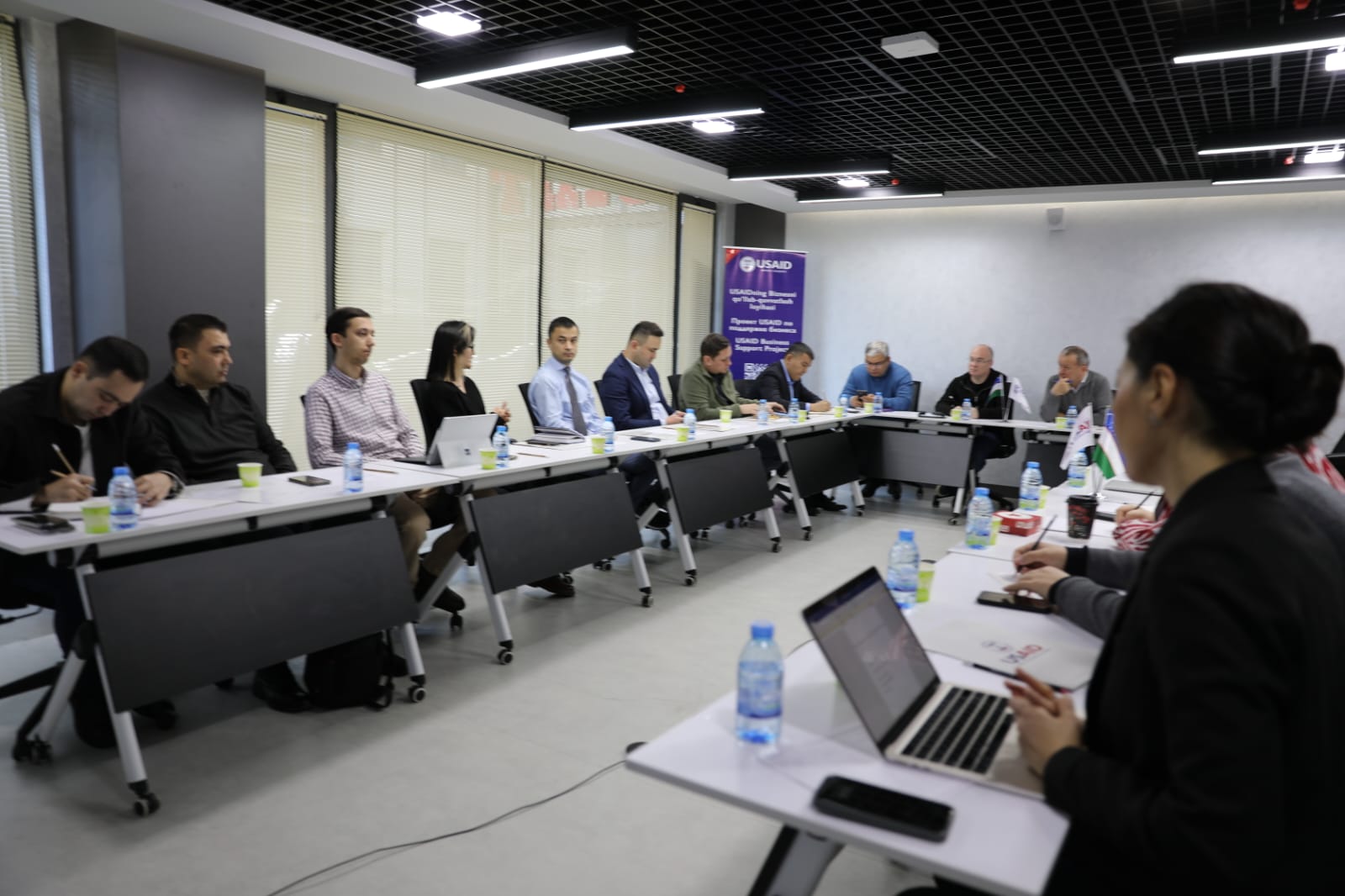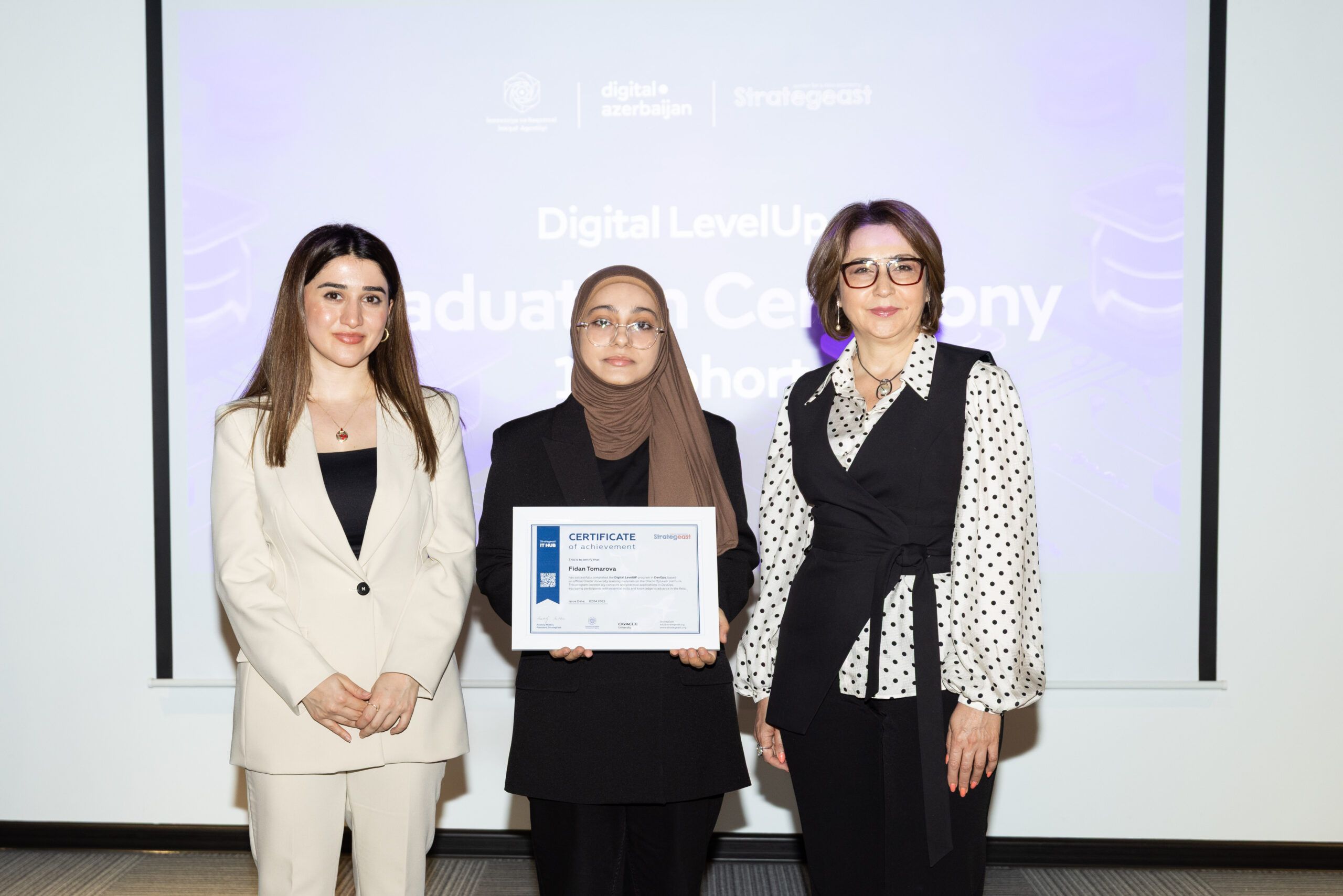On December 12, at the U-Enter Entrepreneurship Center, Tashkent, Uzbekistan, USAID Business Support Project hosted its quarterly donors’ coordination meeting, focusing on ICT training and workforce development. The event brought together representatives from international organizations, educational institutions, and private sector actors to discuss the strategies for scaling ICT training programs, and addressing workforce challenges in Uzbekistan.
Key Discussion Highlights:
– Advancing ICT Training Programs in the AI Era. Discussions explored whether government initiatives such as “One Million Uzbek Coders” remain relevant given the rise of AI technologies. Participants noted that while AI enhances productivity and efficiency, it cannot entirely replace human skills. Junior coders are still needed, and AI tools are expected to elevate the quality of their work rather than eliminate their roles.
It was noted that Uzbekistan has robust IT infrastructure and internet connectivity. However, cultural barriers, especially in rural areas, continue to hinder the rapid adoption of ICT education. Participants emphasized that while coding and AI skills, including advanced programming languages, are critical, basic digital literacy skills such as Microsoft Suite (Word, Excel, PPT) should not be overlooked.
Promoting Inclusion and Expanding Opportunities. The importance of facilitating remote job opportunities for women was emphasized, with childcare and other supportive measures identified as crucial for their participation. Migrants were highlighted as a potential audience for IT training programs, enabling them to enhance their skillsets for better employment prospects. High-skilled migrants were noted as a target group for IT training, with potential benefits for both domestic and international labor markets.
Addressing Workforce Challenges and Opportunities. Discussions emphasized the need to integrate entrepreneurial skills, such as customer development (CusDev), CRM, and unit economics, alongside technical training to create well-rounded digital entrepreneurs. The digitalization of existing traditional companies was identified as a key priority. Scaling ICT training programs to rural areas was identified as a priority, with a focus on building supportive learning environments and fostering peer-to-peer knowledge sharing.
The integration of ICT with industries beyond technology, such as outsourcing services such as accounting offers significant potential.
The Foreign Investment Council (FIC) highlighted policy-level bottlenecks as a key challenge for fostering ICT growth. The FIC mentioned that the International Finance Corporation (IFC) is working with the government of Uzbekistan on initiatives such as the alternative investment development law to address these challenges.
Next Steps for Coordination:
USAID Business Support Project proposed convening the next donors’ meeting with broader involvement of private sector actors to foster a more integrated approach.
GIZ offered to host the next donors’ meeting upon identifying the next topic.




